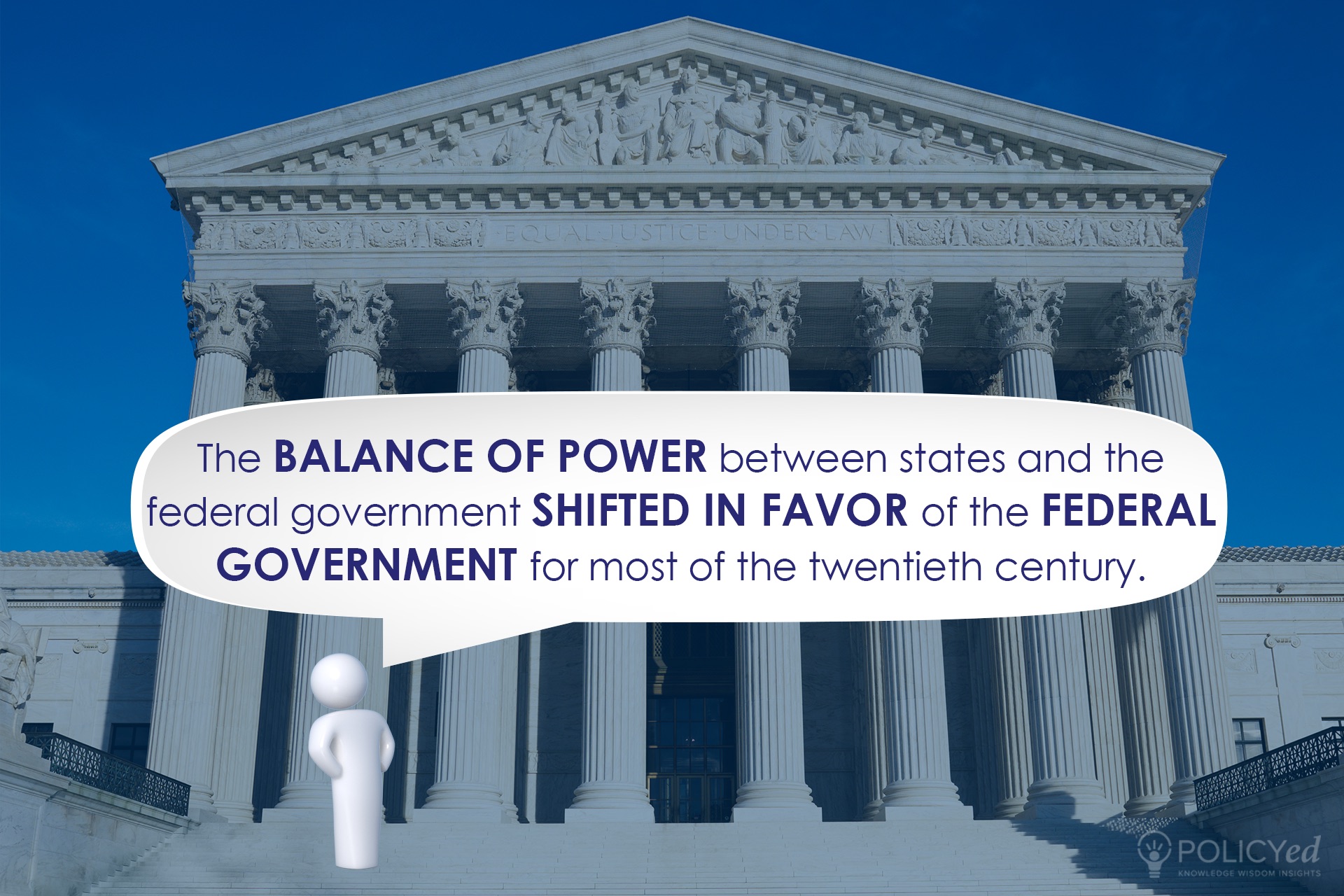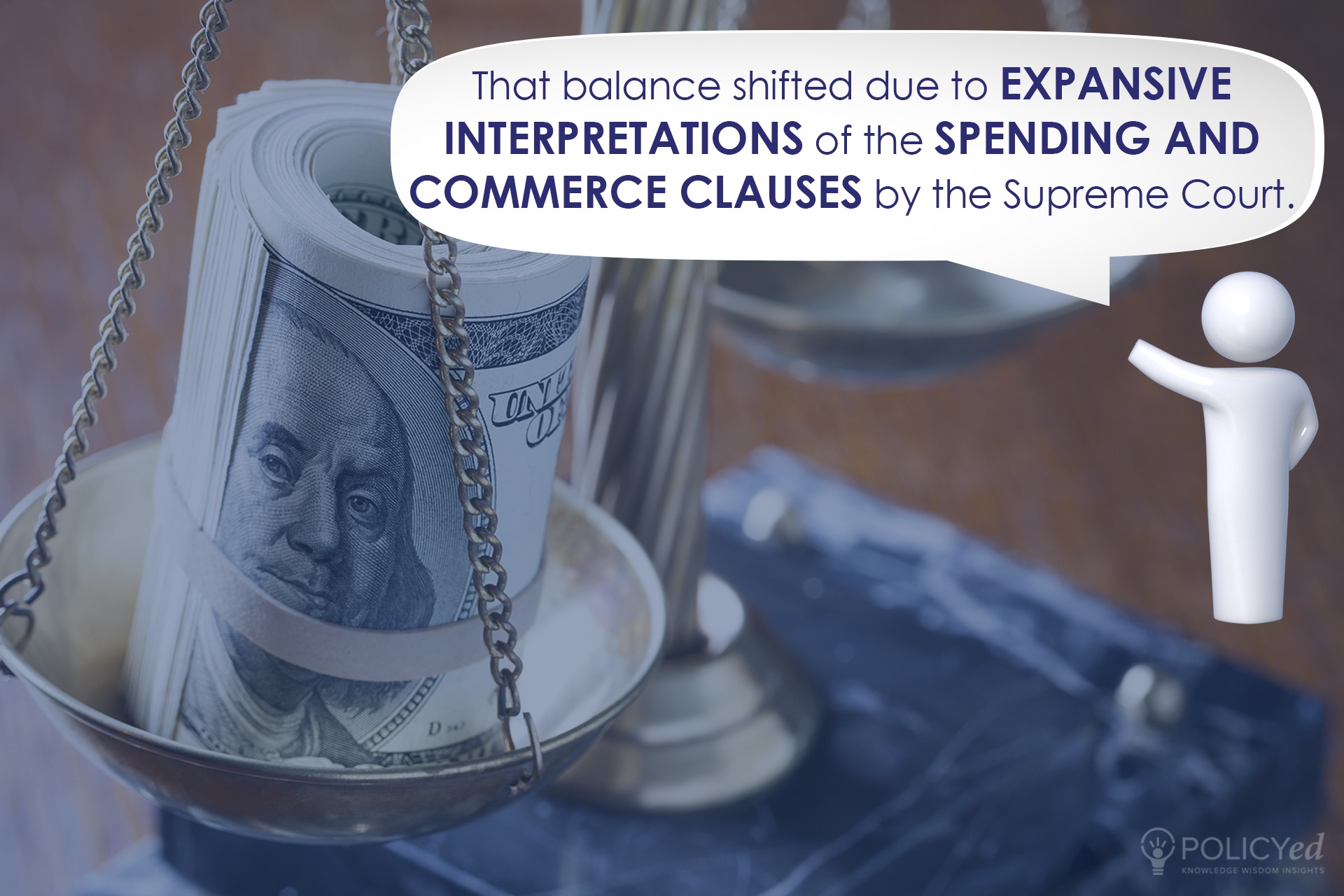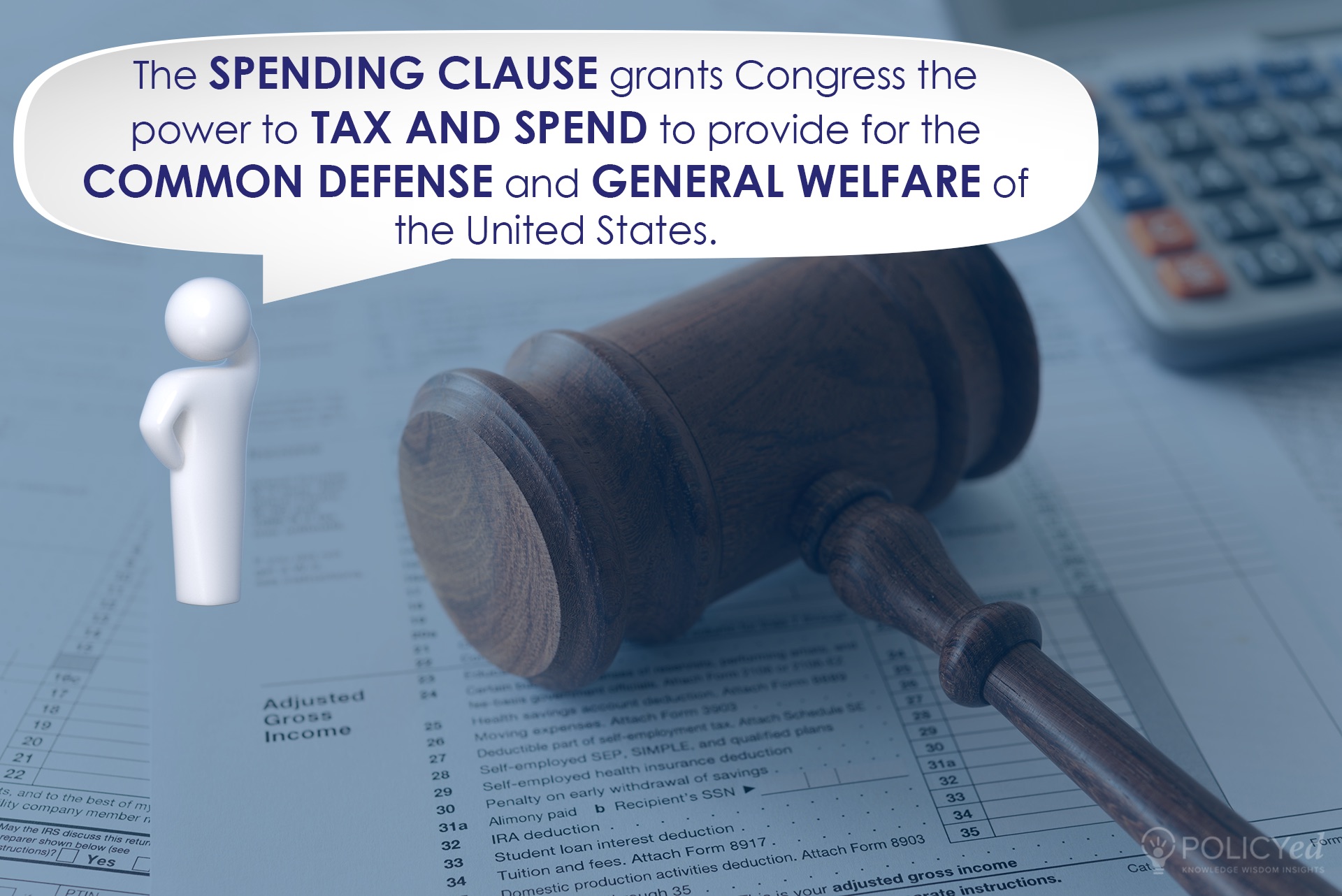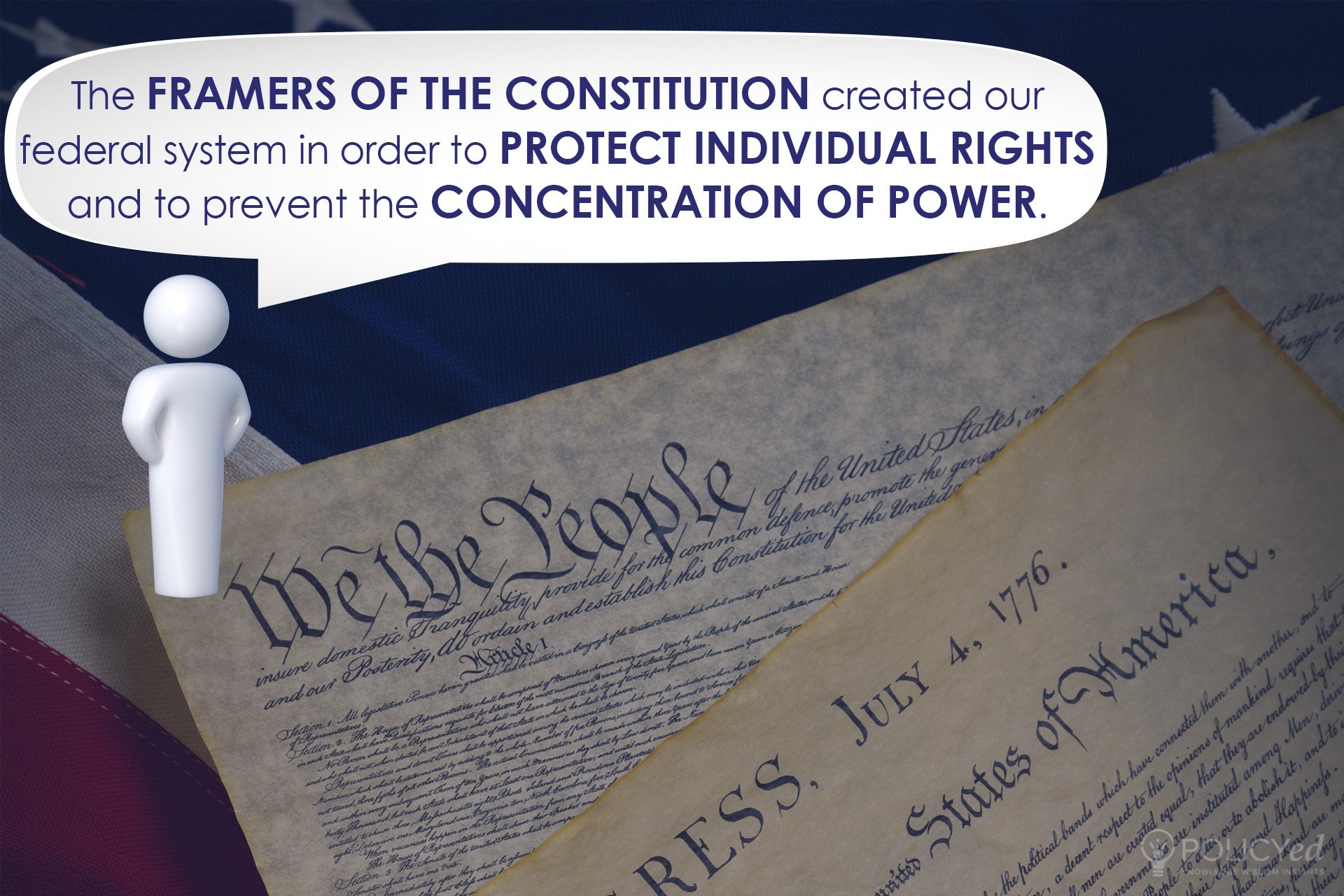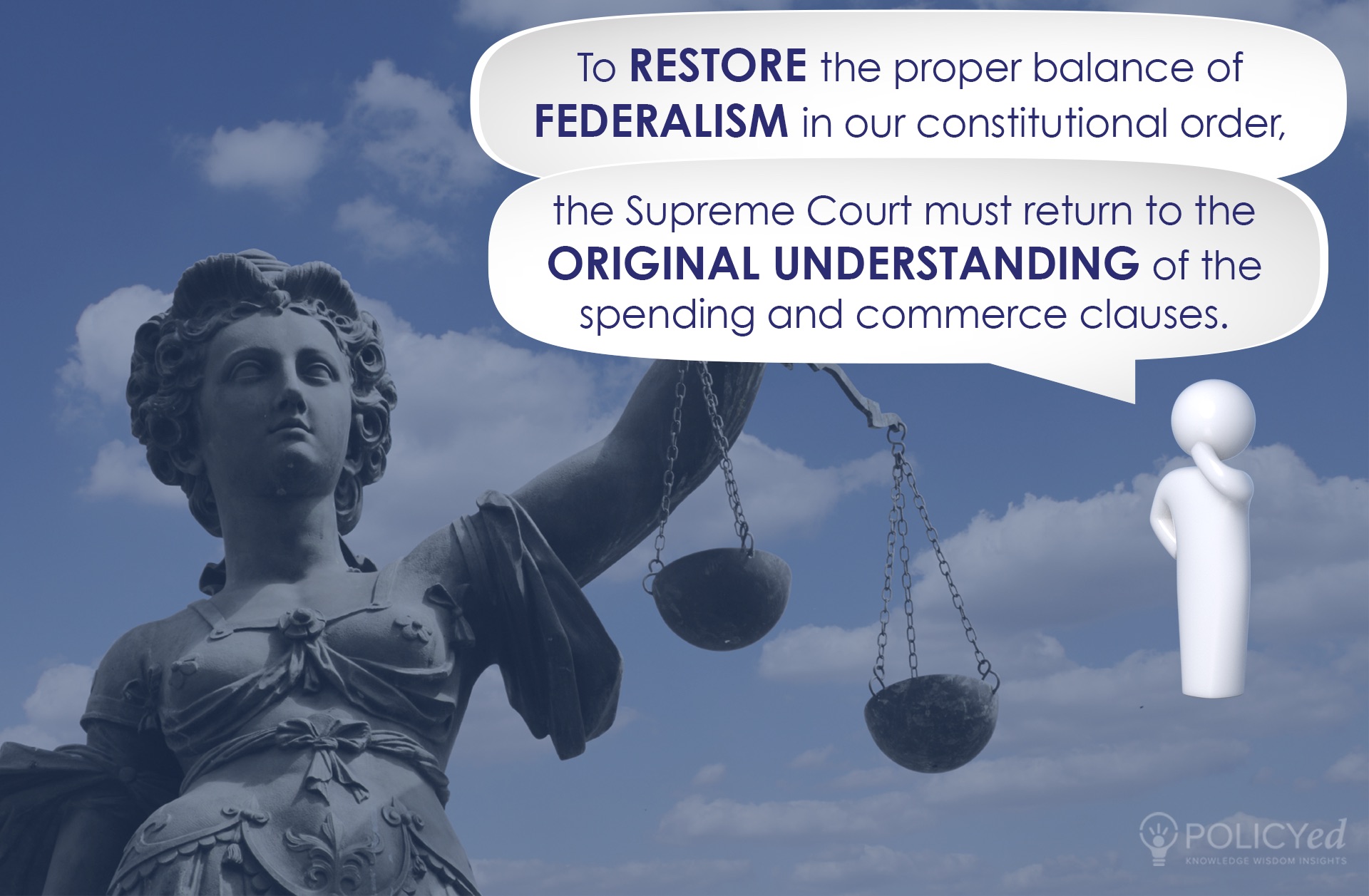Facts At Your Fingertips
Federalism is a system of government that balances power between the federal government and some other entities, like states. In the United States, the Constitution establishes the limits of federal power and reserves all other decisions to the individual states. In the twentieth century, power shifted from states to the federal government.
Beginning with decisions made about during New Deal, powers usually reserved to the states were gradually granted to the federal government. Limits on the federal government’s ability to spend money were expanded. The Supreme Court also expanded the interpretation of what constituted interstate commerce, leading to more authority for Congress to regulate economic activity.
The framers of the Constitution created a federalist system that balances power between the federal government and the states specifically to prevent the concentration of power by the central government. They had witnessed the consequences of the centralization of power in other countries and sought to limit the ability of the government to violate the newly established rights of its citizens.
The Supreme Court can put the country back on path toward federalism and limited government by ruling on cases that involve the spending and commerce clauses. By returning to the original understanding set out in the Constitution, the Court can limit legislative excesses and better promote individual liberty.

